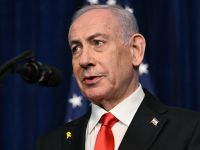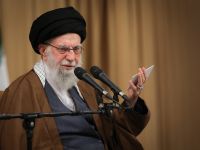The Palestinian Authority’s foreign minister indicated Tuesday that the PA may slightly delay its submission of a statehood bid to the UN Security Council, and said it would be open to adopting a softened European draft resolution with some tweaking
Earlier this week, the Palestinian leadership said Jordan would submit a bid on its behalf to the Security Council by Wednesday, but on Tuesday Riyad al-Maliki said it may be pushed off, though no later than the end of the month, according to the Israeli Ynet news outlet.
He said that the outcome of meeting to be held between chief Palestinian negotiator Saeb Erekat and US Secretary of State John Kerry on Tuesday would likely drive that decision.
Maliki told the Ma’an News Agency he was to meet French Foreign Minister Laurent Fabius on Tuesday to discuss his suggested revisions to the European proposal, and said he would adopt the initiative if the changes were accepted.
Kerry will seek to persuade the Palestinians not to rush ahead with a draft UN resolution seeking to set a two-year timetable for an end to the Israeli occupation.
He has spent the past two days in Europe meeting his counterparts as well as Israeli Prime Minister Benjamin Netanyahu to gauge support for the Palestinian effort at the UN Security Council.
Kerry will also meet Tuesday with the secretary general of the Arab League, Nabil al-Arabi, seeking to keep key Arab allies on board with the US diplomacy, plus Quartet representative Tony Blair.
The Palestinian leadership announced several weeks ago that it would seek a Security Council resolution calling for an Israeli withdrawal to the pre-1967 lines within two years.
France, Germany and Britain — the so-called E3 — have been working on an alternative resolution, which also calls for a peace treaty in two years but does not set a timetable for withdrawal and is thus more acceptable to Jerusalem and Washington.
It would also likely speak of the need for “mutual recognition” and include a reference to Israel’s Jewish character, a measure which is expected to be opposed by the Palestinian leadership.
According to several European diplomats, who spoke on condition of anonymity, all four countries working on the alternative draft are in favor of including some kind of reference to Israel’s Jewish character, but it has not been decided how exactly it would be phrased.
Jordan, which represents the Arab League at the council, had circulated the Palestinian text setting a deadline of November 2016 for a full Israeli withdrawal.
The European draft is often referred to as the French draft because Paris is leading the effort.
The Palestinians this week said Jordan would submit a resolution on their behalf on Wednesday, but Amman’s UN envoy denied that such a step was imminent.
The United States has yet to state whether it would veto it, a step that would become necessary if nine or more council members voted in favor of the Palestinian draft.
US officials told reporters accompanying Kerry that Washington has not yet decided whether to veto or back the French-led UN initiative.
“There are certain things we would never support,” said a State Department official, without elaborating.
Fabius told AFP they were looking for “a resolution which everyone can get behind.”
“Even if the Palestinians have a text in their hand, the Americans have already said that they will veto it.”
The US administration opposes moves to bind negotiators’ hands through a UN resolution — particularly any attempt to set a deadline for the withdrawal of Israeli troops from the West Bank.
But a US veto risks running contrary to Washington’s avowed aim of a Palestinian state and would anger key Arab allies, many of whom are much-needed partners in the US-led coalition against Islamic State militants.
Washington is said to be backing the French draft, which would call for a peace agreement within two 24 months and the creation of a Palestinian state with borders based on the 1967 lines and East Jerusalem as its capital.
“The attempts of the Palestinians and of several European countries to force conditions on Israel will only lead to a deterioration in the regional situation and will endanger Israel; therefore, we will strongly oppose this,” Netanyahu said Monday in Rome after meeting Kerry.
Last week, Netanyahu spoke to France’s president, Francois Hollande, to protest the European bid at the Security Council. “I told Hollande that I think this move is a negative one and will backfire,” the prime minister told reporters in Rome. “Such a move is contrary to a peace agreement, it will thwart all future negotiations and bring about an escalation,” he said, according to Haaretz. “Hollande listened, and I don’t want to say what he said, but I said things very clearly.”
By Marissa Newman, Raphael Ahren








